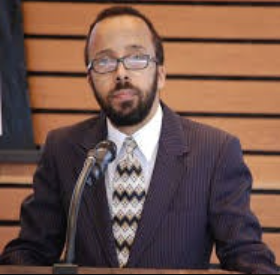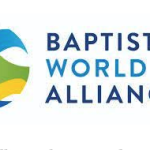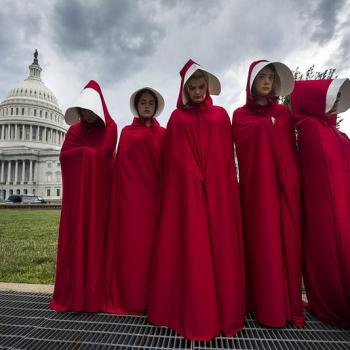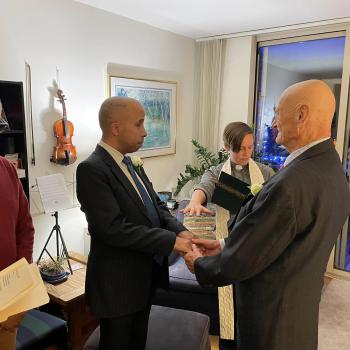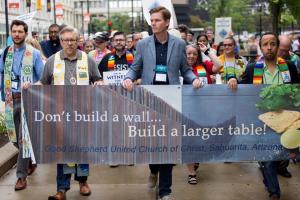
Politically pastoral is more than just a concept or slogan. Being politically pastoral is an approach to confronting injustice and oppression. It’s engaging in woke ministry with a compassionate heart to create a more just world for all.
Being woke isn’t a cardinal sin. Jesus was woke. Jesus fought the evils of empire. People affected by oppression, community organizers, and concerned citizens follow in his footsteps. Social justice ministry isn’t heretical. Sometimes, preaching the obvious to the choir has become necessary.
Choosing Power Over Pastoral
Christianity has been the antithesis of Jesus and his ministry in many ways. Power and prestige have drowned out the pastoral. Many faith leaders created the very earthly kingdoms Jesus swore off.
Many faith leaders align themselves with politicians to reap their blessings rather than advocating for the least of these. They’ve weaponized the Bible and theology to terrorize the oppressed for centuries to curry political favor.
Sacred Text As Sword
Sacred text helped justify the transatlantic slave trade and colonization. Annihilating of Native Americans and enslaving Africans became a spiritual practice. Colonization became seen as an act of worship.
Jim Crow was among its cruelest missionaries. Crow’s ministry continued domestic terrorism aimed at Black people in the United States since 1619. All the while, oppressors twisted scripture to soothe their consciences. Being politically pastoral counters sinful actions and narratives spread in God’s name.
King Said Yes
The Rev. Dr. Martin Luther King, Jr. confronted the false narrative that Black people didn’t deserve dignity and equality by taking on the Montgomery Bus Boycott. King, Jr.’s yes to that challenge, began his social justice ministry journey toward becoming politically pastoral on the world stage.
“I knew that I could never again raise my voice against the violence of the oppressed in the ghettos without having first spoken clearly to the greatest purveyor of violence in the world today — my own government,” King said during his infamous 1967 speech at Riverside Church.
Unlike King, other faith leaders have built careers terrorizing the oppressed.
Building Power To Oppress
Attacking a woman’s right to choose and demonizing LGBTQIA+ people became the solid rock on which Jerry Falwell and Pat Robertson’s houses stood. Celebrating the deaths of people from AIDS solidified their alleged moral majority.
And they weaponized the famously non-Biblical phrase, “If a man will not work, neither shall he eat,” to justify the war on the poor. Copycats continue their hate-filled legacies.
For generations, they’ve haunted and tormented the marginalized and oppressed.
And, sadly, they and abusive clergy have become the face of all Christian faith leaders. Being politically pastoral is reconstructing that face and creating positive change.
Answering My Call
Healing and restoration through advocacy and thought leadership drives this Black gay social justice minister’s work. Earning my Master of Divinity at Chicago Theological Seminary (CTS) provided the infrastructure for my ministry.
Studying at the feet of the Rev. Drs. JoAnne Marie Terrell, Lee H. Butler, Jr. (now Iliff School of Theology president), Susan Brooks Thistlethwaite, and Theodore W. Jennings, Jr. helped shape my Black and queer liberation theological thoughts and sensibilities.
CTS is a stone’s throw away from University Church, a United Church of Christ (UCC)/Disciples of Christ (DOC) congregation with a passion for social justice. Senior Minister Julian DeShazier’s decision to create space for young Black gun violence prevention organizers was my social justice ministry journey’s genesis.
Their wisdom helped me discern my call to social justice ministry and ponder being politically pastoral. Serving as a Justice & Peace Policy Fellow in the United Church of Christ’s National setting from 2016 to 2018 was my first true opportunity.
Advocating for just health care, immigration, safety net, and voting rights policies sharpened my new vision of ministry. Standing with colleagues from the Washington Interreligious Staff Community (WISC) sparked a passion for interfaith engagement.
That work led me to stand with ten other LGBTQIA+ faith leaders worldwide, speaking out against anti-LGBTQIA+ hate and violence during the Ethics of Reciprocity Conference at the United Nations in New York City in 2017, thanks to the able organizing of the Rev. Dr. Patricia Ackerman.
Becoming An Angelic Troublemaker
“We need, in every community, a group of angelic troublemakers.” “For generations, the status quo has been based on violence, with the Negro as victim. A few whites have managed to be liberal without feeling a direct threat to their social position.”
— Bayard Rustin
Those moments inspired the Bayard Rustin Liberation Initiative (BRLI), a D.C.-based 501c3 primarily focused on liberating Black and LGBTQIA+ people. This politically pastoral faith leader followed Rustin’s path to the Fellowship of Reconciliation.
BRLI continues to honor Rustin’s legacy by partnering with National Action Network (NAN) and other organizations to make the 2023 March on Washington a reality. It will take place on Saturday, August 26 at the Lincoln Memorial. To learn more, visit www.mow2023.com. To register for the march, click here.
NAN describes the 2023 March on Washington as a “continuation not a commemoration.” The historic event is meant to unite people to call out ongoing attacks on the marginalized and oppressed.
They include attacks on voting rights, the right to choose, and the LGBTQIA+ community. However, it won’t just call out injustice but offer policy solutions.
Creating lasting positive change through faith-based advocacy and public theology is how this faith leader has been politically pastoral. Join my social justice journey and visit this space for reflections and other content.

